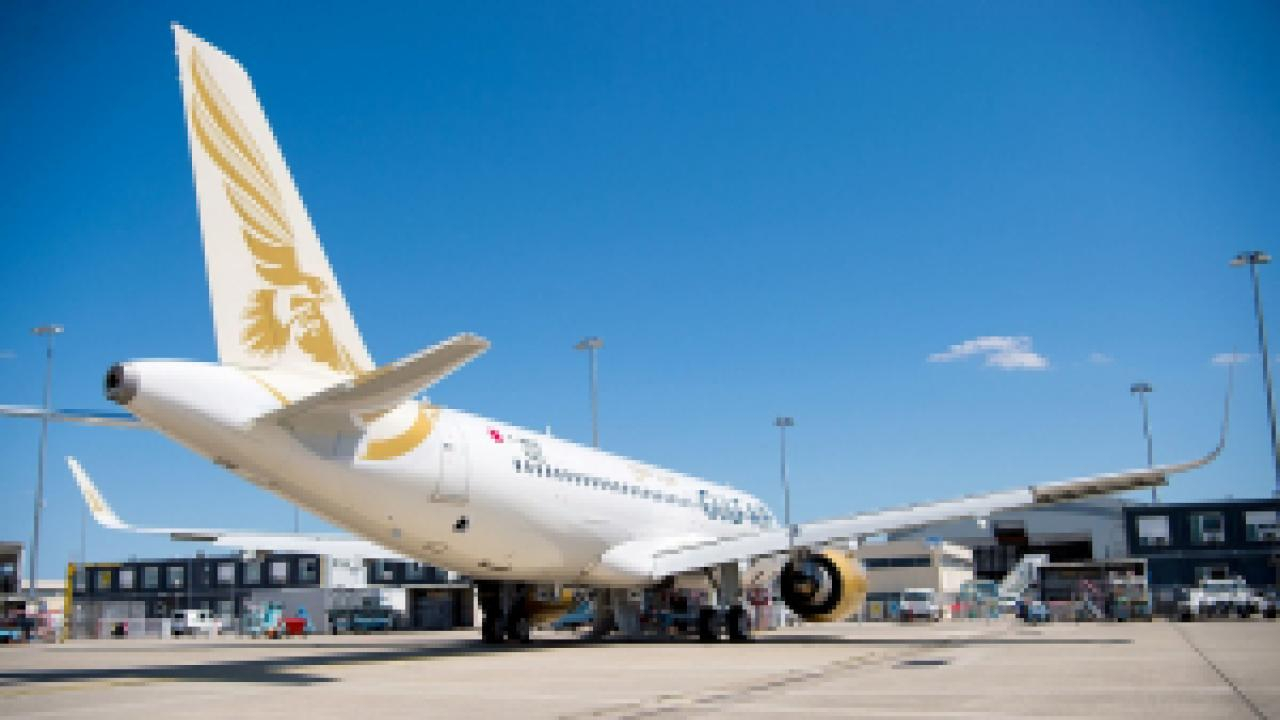Welcome to the parties
A fast-growing parent airline means that EgyptAir Maintenance and Engineering has plenty to do, writes Brendan Gallagher. But the company is relying on a combination of third-party business and joint ventures to catapult it into the MRO big league.

“Compared with the biggest airline-affiliated MRO providers we’re still a middleweight,” said Abdel-Aziz Fadel, chief executive of EGYPTAIR Maintenance and Engineering (EGME). “But my objective is to rise in the rankings and I think we have everything we need to achieve that.”
Headquartered at Cairo International, the company is a subsidiary of Star Alliance member EGYPTAIR Holding Company. It holds full EASA and FAA Part 145 approved maintenance organisation status, recently opened an engine overhaul shop that can handle powerplants of up to 100,000lb thrust, and provides line and maintenance, components and AOG support service for the parent airline and dozens of third-party customers.
“Twenty per cent of our revenues come from third parties,” revealed Fadel, who has headed the operation since 2005. “We plan to grow that to 40 per cent over the next five years, with the balance coming from EGYPTAIR. The airline’s fleet is currently more than doubling in size – it was 32 aircraft four years ago, now it’s 65 and in a year’s time it will be 75.”
Operating from three hangars with bays for three wide-bodies and seven narrow-bodies, EGME provides EGYPTAIR with line maintenance, heavy checks, component repairs and engine overhauls. Capabilities include full C-checks for the Airbus A319, A320, A321, A330 and A340, and the Boeing 737 Classic/NG and 777.
The company also meets the needs of no fewer than 77 third-party customers – a source of income that Fadel expects to see becoming ever more significant in the future. “Our existing customers are themselves growing – we know their plans for fleet expansion,” he said. “Then there are a lot of new airlines being established in this region: recent additions in
Top targets outside the country include Tripoli-based Afriqiyah Airways, Libyan Airways, Royal Air Maroc, Yemen Airways, NAS Air of Saudi Arabia, and Saudi Arabian Airways.
EGME is investing to extend its ability to serve third parties. It currently has stations, each with 50-60 staff, at the popular holiday destination of Sharm el-Sheikh, and at
Fadel’s sights are also set further afield. “A year ago we had hardly any Russian customers but now we have 18, with several of them treating Sharm el-Sheikh and Hurgada as bases for the aircraft they use for their services to
The EGME boss also wants the Russians’ engine business. “They have moved substantially from Russian-designed aircraft to Western types – as much as 80 per cent of the country’s air transport is now Western in origin,” he observed. “But they don’t have enough people and facilities to support them. We’re competing for a share of that market.”
A joint venture with Rolls-Royce and Lufthansa Technik, the
EGME’s day-to-day engine work is facilitated by real-time engine monitoring via VHF and satellite ACARS for trend monitoring purposes. “We use Airbus’s Airman and Boeing’s Airplane Health Management software to display and analyse the datalinked information,” said Fadel, who has no fewer than three aircraft status screens in his office. “This gives us early warning of discrepancies in-flight and allows us to have qualified staff, tools and materials waiting to fix them as soon as the aircraft lands. If there’s enough time, the problem is fixed during the turnaround and there is no schedule disruption.”
Other strings to the EGME bow include continuous airworthiness management and a wide-ranging AOG support service for EGYPTAIR and third parties. “Continuous airworthiness management is a recent addition to our total care offering,” Fadel explained. “We manage things like service bulletins and airworthiness directives and schedule maintenance for our customers. And we maintain AOG teams here at Cairo International, using the worldwide Star Alliance network to move them to where they are needed, and to facilitate things like visas and customs clearances.”
The company’s breadth of capabilities has helped it to navigate the recession largely unscathed. “We had a good recession,” declared Fadel. “A lot of people returned leased aircraft in 2008 and that generated plenty of work for us in the form of mandatory C-checks. At the same time, new carriers continued to enter the market, deciding not to invest in tooling and staff but to come to us for total care.”
EGME’s revenues were down two per cent in the first half of its 2009-10 financial year but growth resumed in the second half of the period. “I anticipate revenues of around $250 million and a profit of $40 million for the full year and we’re aiming for $300 million in 2010-11,” said Fadel. “We have demand in excess of our current capacity, so this year we will add 500 locally trained and newly qualified engineers to the workforce.”
Fadel is pinning hopes for long-term growth on full risk and profit-sharing joint ventures. “The engine shop was our first JV – now we’re in negotiations with other entities,” he said.
The talks are understood to relate to base maintenance for wide-body aircraft operated by leading carriers. “A wide-body needs a lot of MRO man-hours and they are expensive in
EGME has been punching above its weight for some years – now the company wants to mix it with the heavy hitters of airline MRO. “We have the ambition, the skilled staff, the facilities, and the full support of our parent airline and the national government,” said Fadel. “We’re ready to compete with the biggest providers in the business.”
Stay up to date
Subscribe to the free Times Aerospace newsletter and receive the latest content every week. We'll never share your email address.

